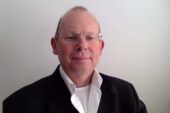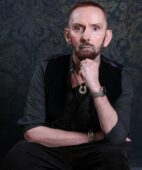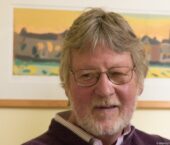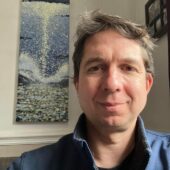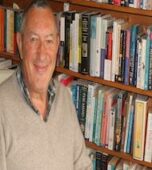
Therapists in Washington, England ENG, United Kingdom GB

Dr Grenville Major
Therapist, MBchB, MRCpsych, MSc psychological therapies
My take on life is that it is pretty difficult. Not for "Sissies" my father told me. I subscribe to the idea that meaning and purpose can be found in helping others. Making the world a little better for others. To that end I studied medicine and have been a GP, neurosurgeon, emergency specialist, psychiatrist and psychotherapist. As a therapist I use tools not only from psychotherapy but also draw on psychoanalysis, philosophy, biology, social science, and the spiritual. I am keen to help others find their own unique purpose and get meaning out of their life. It would be an honour for me to help you.
Benjamin Marr
Counsellor/Therapist, BA MA Relational Psychotherapist/ Birkbeck College - Psychodynamic Counsellor
My approach to therapy is one of deep belief in the clients ability to heal, resolve issues and move forward towards a positive ending.
Well on the Way
Therapist, Reichian Therapy (Character Analysis & Bodywork), Ecotherpay, Family Constellations, Touch for Health Kinesioogy, Natural Healing, Accredited facilitator of the Work that Reconnects
Restorative connections, resourcing and repairing resilience in troubled times, and exploring our responses to times of uncertainty.
I offer a range of skills tailored to individual needs. Embracing all is an Ecotherapy approach that recognises our interconnection with all life; this can involve work in Nature.
Jerry Ramsden
Counsellor/Therapist, (Dip.Couns)
My work is based on inner-child healing, goal setting, and building mental resilience, underpinned by science.
John Castleford
Registered Psychotherapist, MA, mARCHTI
Many therapists focus on what is "wrong" and use 'referring issues' as the starting point. However, current best practice strongly suggests that personal introspection, guided or not, tends to keep the pain of the past very much in the present. If you want to focus on what is adversely affecting you, what better way to keep the brain tuned in to it is staying focused on it. I base my approaches on the very latest findings from neuroscience, and my starting point is often the time when you were at your best, and experiencing high points in your life: by recalling those we not bring great memories into our present focus but we also recreate those wonderful feelings we felt at that time. So, just as you do your best work when you are at the top of your game, focusing on positive rather than negative feelings from the past is a great place to begin work. Just ask yourself if you make your best decisions when you are feeling low. Now compare that to when you have been so buoyed up that you feel all but unstoppable.
Most people aren't 'broken'. But they may be side-lined or undermined. Or held back, Stuck, or otherwise constrained by a mismatch between expectations/aspirations and how you feel. The logical bits of the brain don't always align with emotions and feelings.
Maybe external circumstances have contributed to persistent low mood. Perhaps your self-esteem took a nose-dive, or you find it hard to cope, or don't feel you're in control anymore.
Our thoughts often control us, and our feelings -- and our behaviour often depends on how we feel. So do our thoughts and the associated feelings prevent us from becoming the best version of who we could (and should) be? Are your thoughts stopping you from being the best version of who you could be? I suspect it probably wasn't always like this. I
f I can't make you feel better about yourself within 15 minutes then I don't deserve to work with you.
Why not let me use my academic background (degrees in anthropology, and a degree in education) as well as decades of experience in psychological support, coaching, education, and psychotherapy to help you?
As well as general issues, such as low mood, phobias and traumatic experiences, I also specialise in existential therapy and have an extensive background in the philosophy of Stoicism [not the unemotional/stiff-upper-lip Mr Spock version] on which Albert Ellis' REBT and Aaron Beck's CBT both based their therapeutic approaches.
I draw on a broad background in academia, teaching (secondary and higher education), anthropology, philosophy, neurology and psychology which I update continuously. I suspect Neurology and Psychology are boring through the proverbial mountain towards each other but they are still some distance apart. So insights from both are useful. I feel the therapeutic professions tend to over-label conditions too readily and that often means their clients identify with the label. I have a wide range of theoretical orientations and can utilize specialist modalities and interventions that are appropriate for the client. I list specialties below and also include testimonials that describe outcomes that speak more eloquently than any personal statement.

